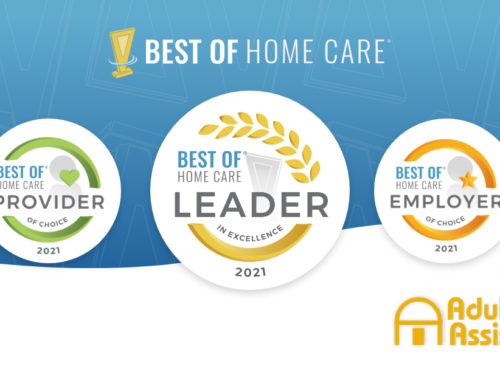Most Americans age 65+ want to live independently for as long as possible. Although that’s an admirable goal, the average senior eventually requires at least some outside assistance to perform activities of daily living (ADLs), such as bathing, preparing meals, and housekeeping. As a concerned friend or relative, recognizing when your aging loved one needs help around the house isn’t always easy. Here are some telltale signs that it might be time to have “the talk” about home care with that special senior in your life.
Why Do Some Seniors Refuse Help?
The average senior has spent a lifetime managing a household and various jobs. Most don’t want to be lectured by others about handling their personal affairs — especially their grown children.
Older adults often don’t want help for these reasons:
- Denial
- Privacy concerns
- Embarrassment
- Pride and dignity
- Stubbornness
- Apathy
Confusion and memory loss caused by dementia or Alzheimer’s can further cloud a senior’s judgment. Once your loved one starts undergoing cognitive changes, it can become even more challenging to convince them to accept outside assistance.
Functional Limitation Warning Signs
If you suspect that your loved one is having trouble performing normal, everyday activities, here’s what to look for and how to help:
Frequent falls
Fall-related injuries send millions of older adults to hospital emergency departments every year. Vision changes, poorly lit hallways, and slippery bathroom surfaces are all fall hazards for aging-in-place seniors. If your loved one has fallen several times recently, having a “personal assistant” in the home at least some of the time will help ensure a safer home environment.
Physical signs
Losing or gaining excessive weight, wearing the same clothes every day, and poor hygiene are all signs that your loved one may need help. Cognitive red flags like memory loss, confusion, and forgetfulness could indicate the onset of dementia.
If poor mobility is affecting your senior’s quality of life, volunteer to assist them around the house by preparing meals, doing laundry, walking the dog, etc. If you suspect that your loved one has cognitive impairment, schedule them a doctor’s appointment so they can be evaluated further.
Unfinished business
Stacks of past-due bills could indicate that your senior is having trouble managing their financial affairs. Offer to become a custodian on their bank and credit card accounts, which will also help protect them from financial scammers. If they haven’t already done so, encourage your loved one to prepare a will and to choose someone as their durable power-of-attorney (POA).
Driving-related issues
If your loved one has gotten several tickets or been involved in several accidents, it’s best to have “the talk” about driving safety. Multiple suspicious dents and scrapes on their vehicle could also indicate that it’s time to turn over the car keys for good. Respectfully share your concerns with them while offering safe and reliable transportation alternatives.
Social isolation
Depression, anxiety, and a lack of reliable transportation keep many seniors from socializing as they should. On the other hand, older adults that stay socially engaged tend to enjoy happier, healthier, and even longer lives than those who are lonely and isolated.
Introduce your loved ones to activities they might enjoy at the local senior center. Teach them how to use the latest technologies, like video chats, online communities, and social media, to stay in touch with old friends — or make new ones.
How to Share Caregiving Responsibilities
Once your loved one agrees to accept help around the house, additional sources of home care may include:
- Informal caregivers such as family members, neighbors, and friends
- Community volunteers that work with the aging
- Senior transportation, pharmacy delivery, and meal services
- A professional caregiver from a trusted home care provider
Flexible Home Care Solutions for Seniors in Arizona
Although it’s a labor of love, assisting that special senior in your life can be challenging with everything else on your plate. At Adultcare Assistance Homecare, we’d love to have an open dialogue with you about your needs and how we can help your loved one comfortably and affordably age in place. As a locally owned agency with a long track record of success, our highly trained caregivers can step in and provide your family with the care that’s needed.
Our home care services include respite care, companion care, medication reminders, senior transportation, light housekeeping, and even 24-hour, live-in assistance. To learn more about our award-winning services now or to get a FREE Home Care Assessment for a senior in Phoenix, Sun City, or Tucson, AZ, today, please visit Adultcare Assistance Homecare at: www.adultassistance.com.



